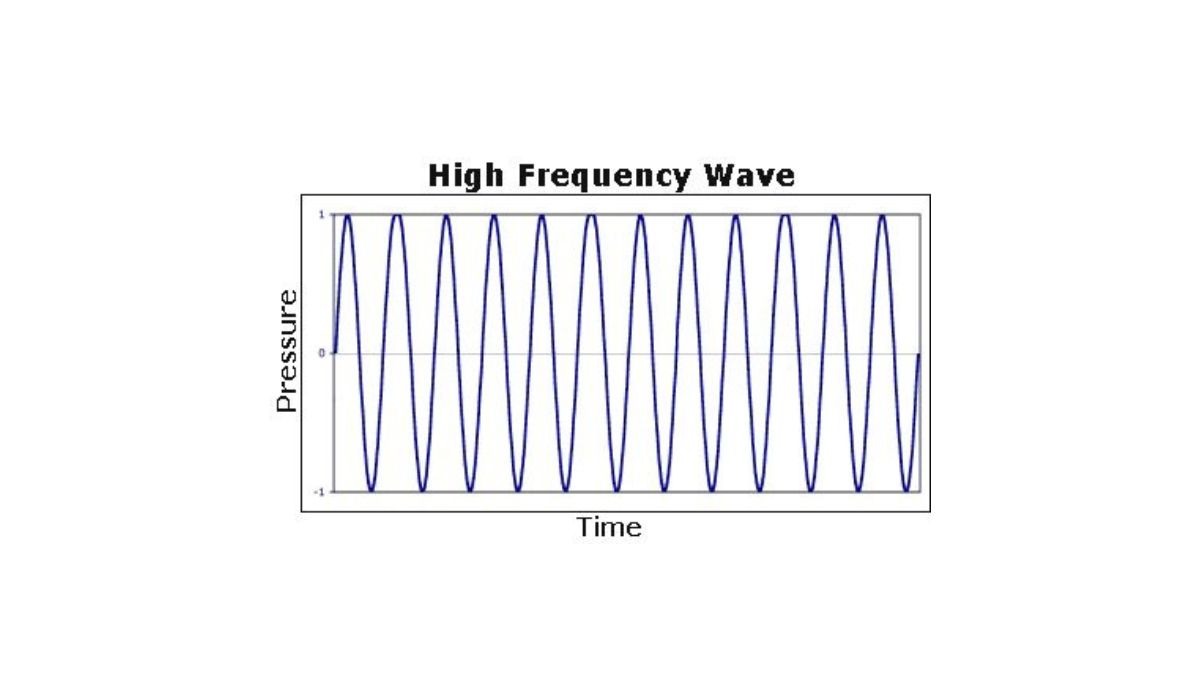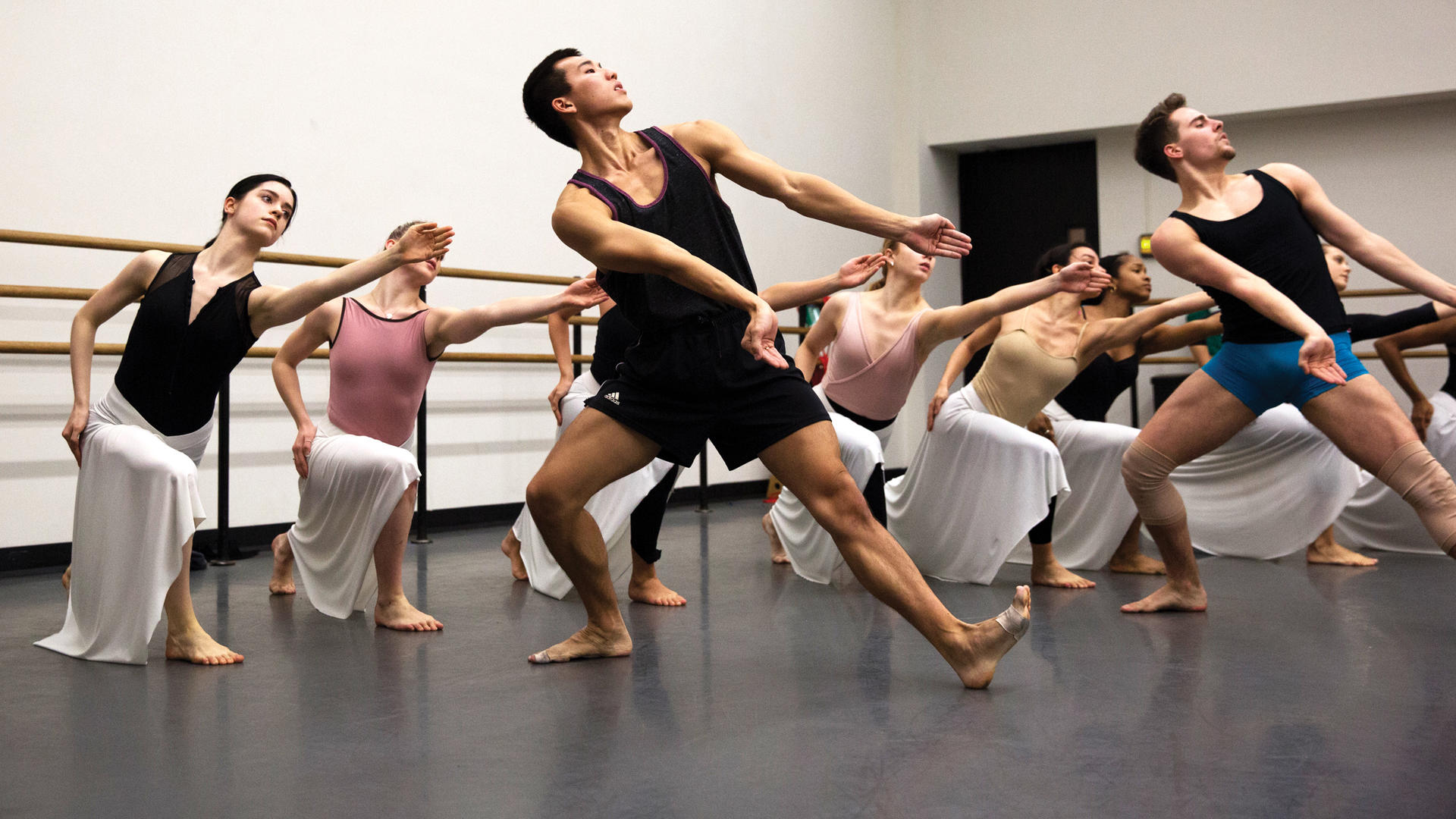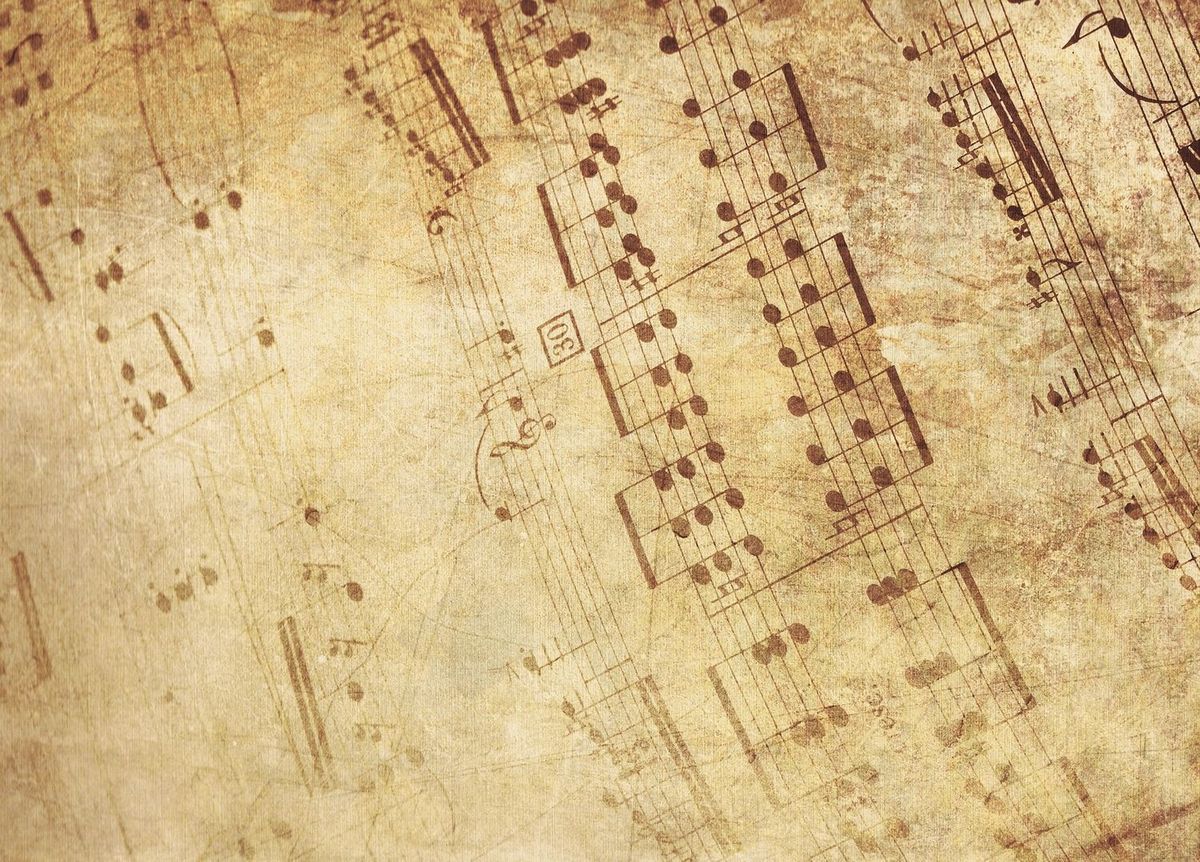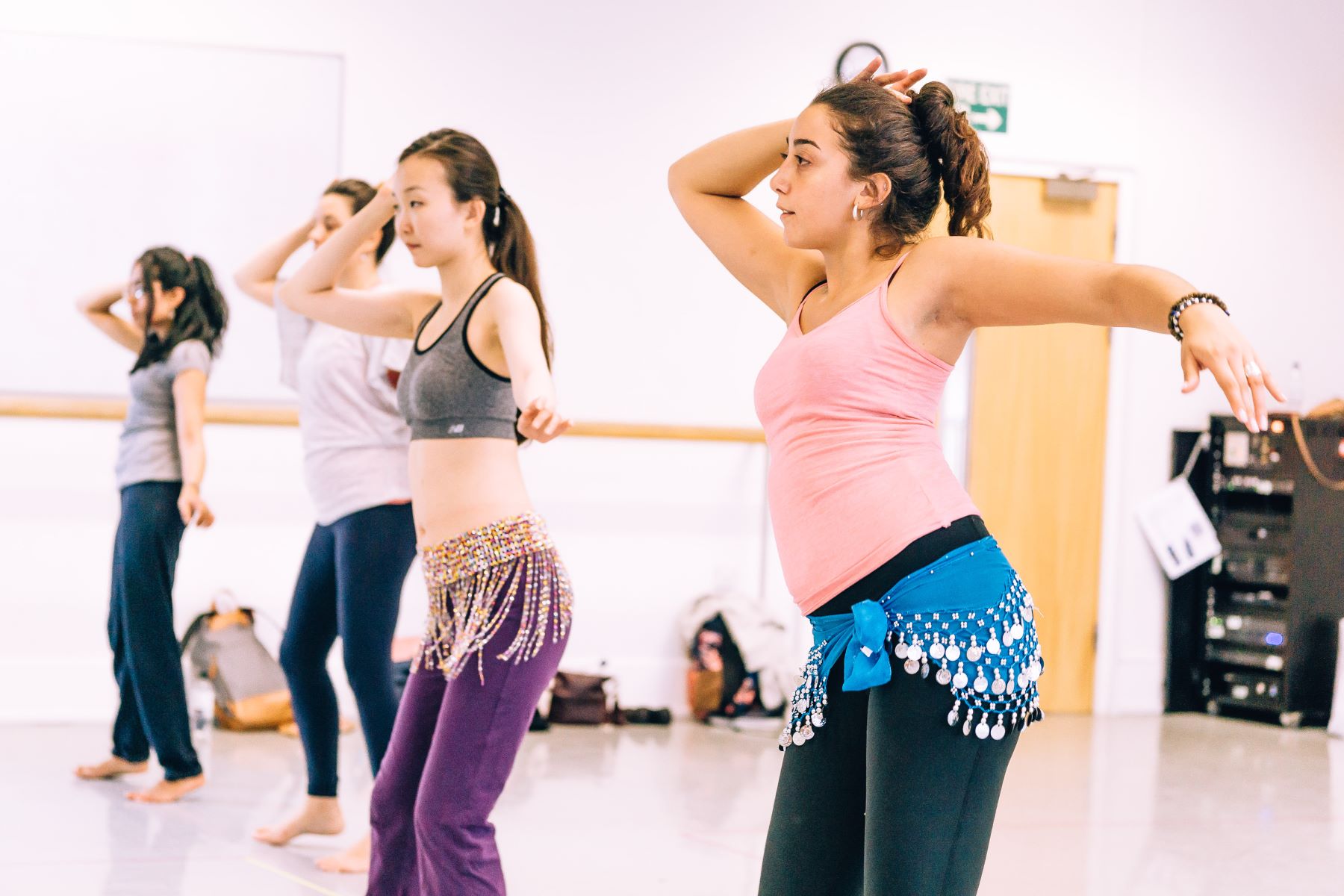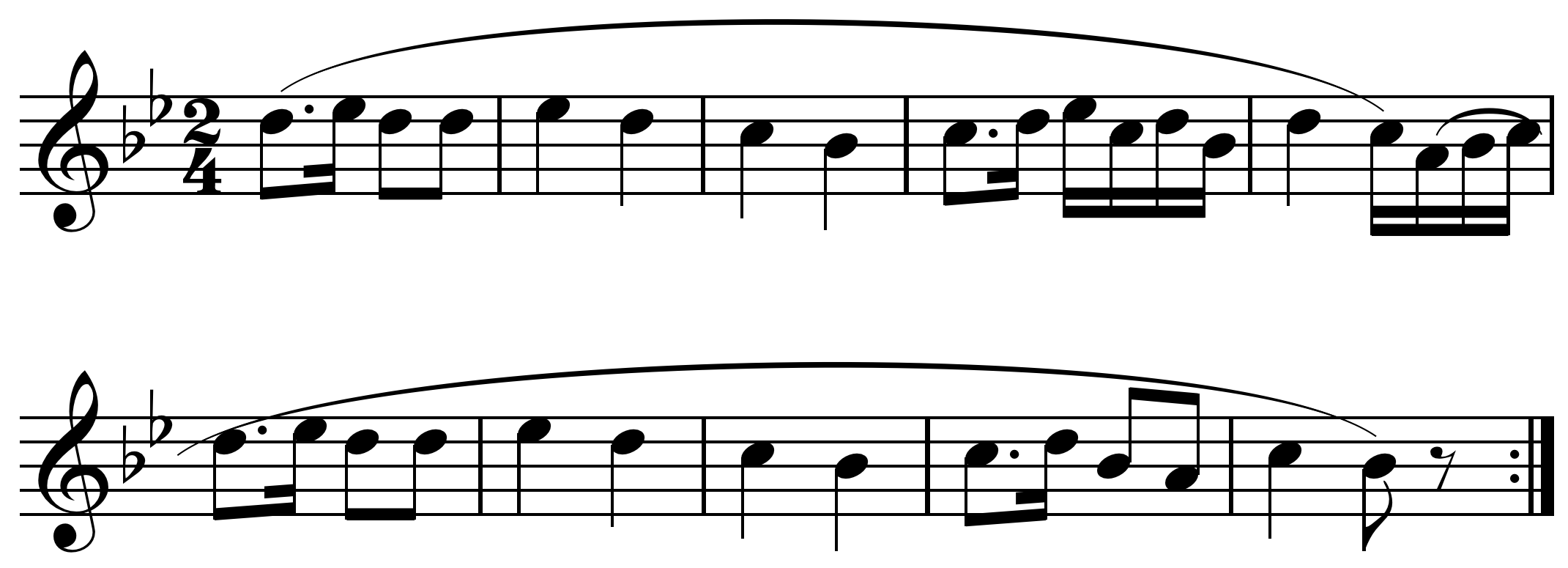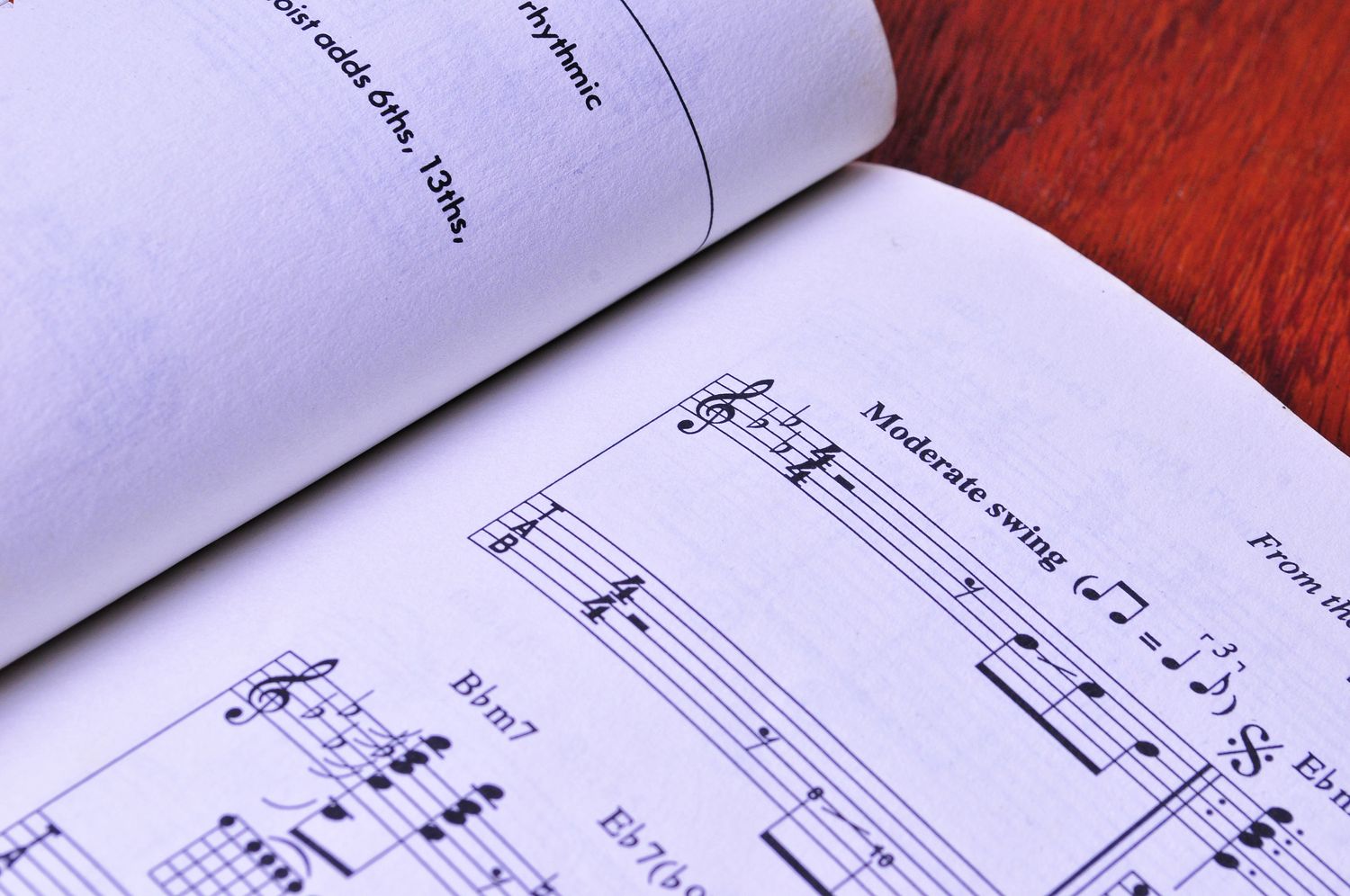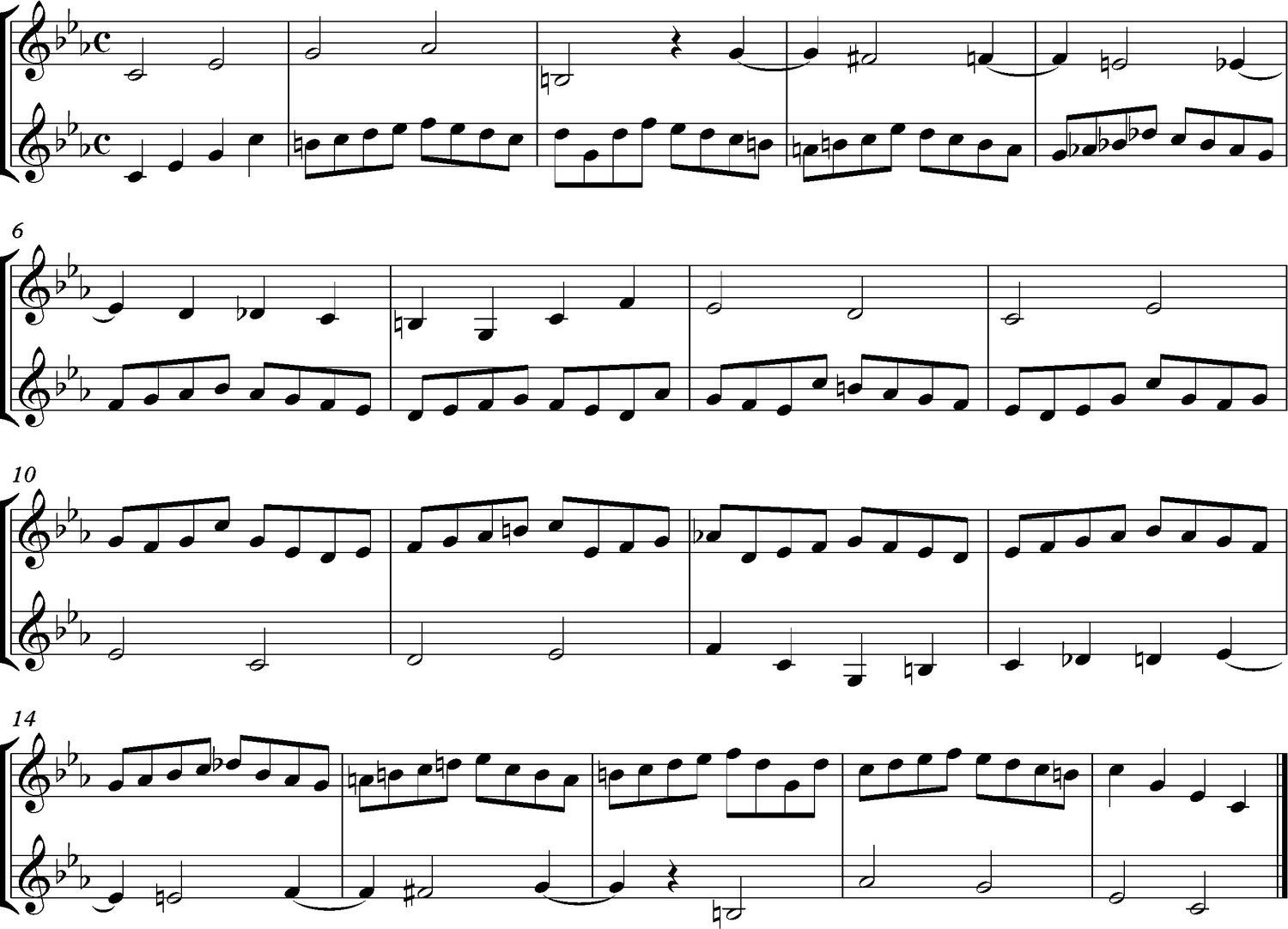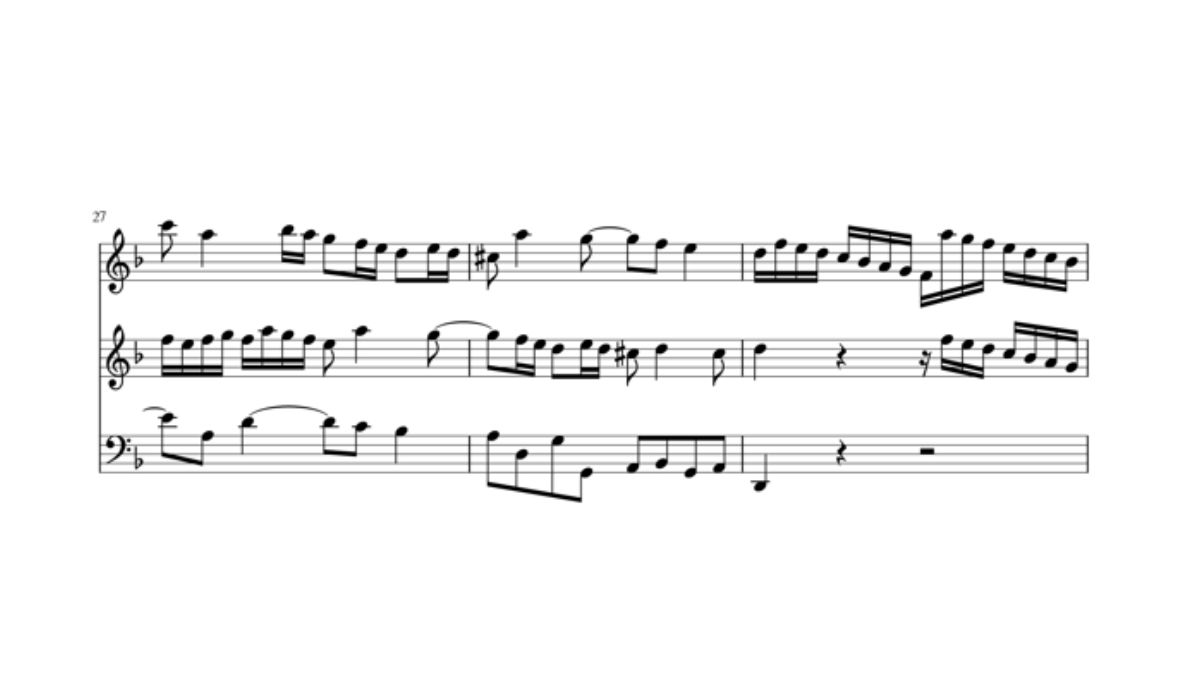Home>Production & Technology>Music Theory>What Is Music Theory Class In High School
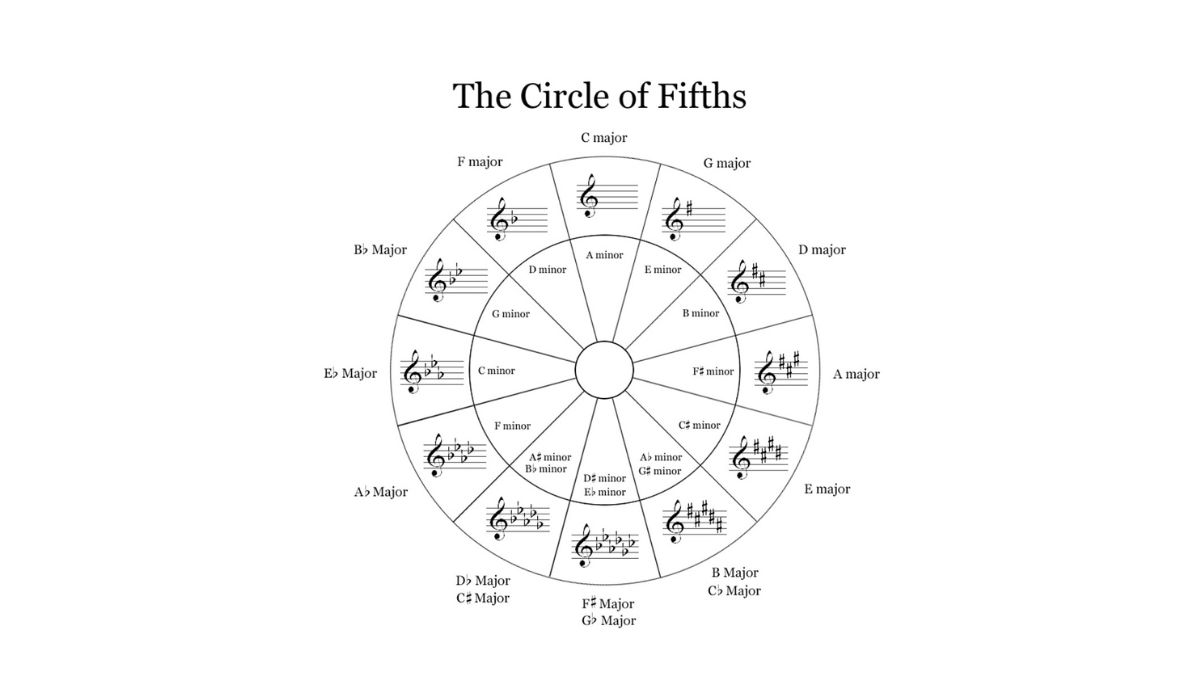

Music Theory
What Is Music Theory Class In High School
Published: January 30, 2024
Discover the ins and outs of Music Theory in high school. Uncover the key concepts and techniques that will shape your understanding of music. Enhance your musical skills with a Music Theory class.
(Many of the links in this article redirect to a specific reviewed product. Your purchase of these products through affiliate links helps to generate commission for AudioLover.com, at no extra cost. Learn more)
Table of Contents
- Introduction
- What is Music Theory?
- Importance of Music Theory Class in High School
- Curriculum and Topics Covered
- Benefits of Taking Music Theory Class
- Developing Music Skills
- Enhancing Critical Thinking and Analytical Abilities
- Preparation for College or Conservatory Programs
- Integration of Theory and Practice
- Conclusion
Introduction
Welcome to the fascinating world of music theory! For those who have a deep passion for music and aspire to understand the language behind it, music theory is an essential subject to explore. In high school, music theory classes offer a comprehensive study of the fundamental principles that underpin music composition and performance. This article aims to shed light on the importance of music theory classes in high school and the benefits they provide.
Music theory can be defined as the study of how music works. It explores the elements of music, such as melody, harmony, rhythm, form, and structure, and examines how these elements interact to create meaningful and engaging compositions. By learning music theory, students gain insight into the inner workings of music, allowing them to appreciate and analyze the pieces they listen to or perform.
In high school, music theory classes serve as a solid foundation for developing a comprehensive understanding of music. They introduce students to the basic concepts, vocabulary, and techniques used in music composition and analysis. These classes not only provide students with the necessary tools to appreciate music on a deeper level but also equip them with the skills to become better musicians and performers.
The curriculum of music theory classes in high school covers a wide range of topics. Students learn about notation, scales, key signatures, intervals, chords, and progressions. They delve into the study of musical forms, including the sonata, fugue, and symphony. Additionally, students explore the principles of voice leading, counterpoint, and musical analysis. With each topic, students gain a deeper understanding of how music is constructed and the various techniques used by composers to create unique and impactful compositions.
Throughout the music theory class, students are encouraged to actively engage with the material. They participate in exercises that involve writing melodies, harmonizing chords, and analyzing musical excerpts. These hands-on activities allow students to apply the concepts they have learned in a practical and creative manner. Additionally, group discussions and interactive exercises foster collaboration and critical thinking skills.
While music theory classes primarily focus on the theoretical aspects of music, they also have numerous benefits that extend beyond the classroom. In the following sections, we will explore the importance of music theory classes in high school and the advantages they offer to students.
What is Music Theory?
Before delving into the significance of music theory classes, it is important to have a clear understanding of what music theory actually entails. Music theory is the study of the fundamental principles and concepts that govern music composition, performance, and understanding. It is the language of music, providing a systematic framework for analyzing and interpreting musical elements and structures.
At its core, music theory examines the elements that make up music, including melody, harmony, rhythm, form, and texture. It explores how these elements interact and contribute to the overall musical experience. By studying music theory, one gains insight into not only how music is created, but also why it sounds the way it does and how it can evoke particular emotions.
Music theory encompasses a wide range of topics and concepts. These include understanding the staff notation system, recognizing and interpreting musical symbols and markings, identifying scales and key signatures, analyzing chords and chord progressions, and exploring different musical forms and structures. Additionally, music theory involves studying the principles of voice leading, counterpoint, and harmonic analysis.
Music theory provides a framework for musicians to communicate and understand music. It allows them to read and interpret sheet music, enabling them to perform compositions accurately and expressively. Music theory also gives musicians the tools to analyze and appreciate music from various genres and eras, providing a deeper level of engagement with the art form.
While music theory may seem like an abstract and technical subject, it is an integral part of becoming a well-rounded musician. By understanding the principles of music theory, musicians can make more informed choices in their compositions and performances. They gain the ability to analyze and interpret music, helping them to thoughtfully interpret the composer’s intentions and convey their own musical expression.
Furthermore, music theory serves as a common language for musicians to communicate and collaborate with each other. Whether it is during rehearsals, performances, or discussions with fellow musicians, a solid foundation in music theory enhances communication and facilitates a deeper understanding of the music being played.
Overall, music theory is the key to unlocking the mysteries of music. It gives musicians the tools to navigate the complexities of musical compositions, understand the underlying structures, and express themselves creatively. Through the study of music theory, students gain a deeper appreciation for music, paving the way for a more enriching and fulfilling musical journey.
Importance of Music Theory Class in High School
Music theory classes in high school play a crucial role in the musical education of students. While practical skills such as playing an instrument or singing are essential, understanding the theoretical aspects of music is equally important. Here are some reasons why music theory classes are of great importance in high school:
- Comprehensive Music Education: Music theory classes provide a well-rounded education in music. They go beyond simply learning to play an instrument or sing, and delve into the fundamental principles that govern music. Students gain a deeper understanding of how music is structured, composed, and analyzed, enhancing their overall musical knowledge.
- Improved Music Literacy: Music theory classes help students develop strong music literacy skills. They learn to read and interpret sheet music, understand musical terminology, and recognize various musical symbols and notations. This enables them to confidently navigate through musical scores and accurately perform compositions.
- Enhanced Listening Skills: By studying music theory, students develop enhanced listening skills. They learn to discern different musical elements such as melody, harmony, and rhythm in a piece of music. This attentiveness to detail improves their ability to analyze and appreciate music, allowing for a more nuanced and enjoyable musical experience.
- Increased Creativity: Music theory classes foster creativity in students. They learn about different compositional techniques, chord progressions, and musical forms, providing them with a toolbox of ideas for their own compositions. Understanding the rules and principles of music theory empowers students to experiment and create their own unique musical expressions.
- Strong Foundation for Advanced Musical Studies: For students who plan to pursue music at a higher level, whether in college or conservatory programs, a solid foundation in music theory is essential. Music theory classes in high school provide the necessary groundwork for more advanced music theory courses and ensure students are well-prepared for the academic rigors of higher education in music.
- Supports Critical Thinking Skills: Studying music theory requires students to think analytically and critically. They learn to dissect and analyze musical pieces, identifying patterns, chord progressions, and structural elements. This process of analysis enhances their critical thinking and problem-solving abilities, skills that can be applied in various other academic and real-life contexts.
- Integration of Theory and Practice: Music theory is not meant to be a standalone subject; it is meant to be integrated with practice. Music theory classes in high school provide opportunities for students to apply their theoretical knowledge in a practical and creative manner. They may be asked to compose their own melodies, harmonize chords, or analyze famous musical works, bridging the gap between theory and performance.
Overall, music theory classes in high school are invaluable in providing students with a strong foundation in the theoretical aspects of music. They enhance musical literacy, critical thinking skills, creativity, and lay the groundwork for advanced musical studies. By understanding the language of music, students gain a deeper appreciation for the art form and develop the necessary skills to become well-rounded and knowledgeable musicians.
Curriculum and Topics Covered
The curriculum of music theory classes in high school is designed to introduce students to the fundamental concepts and principles of music theory. It covers a wide range of topics, providing a comprehensive understanding of how music is constructed and analyzed. Here are some of the common topics covered in a high school music theory curriculum:
- Notation: Students learn the basics of music notation, including reading and interpreting musical symbols, note values, rests, and dynamics. They become familiar with the staff notation system and how to accurately represent musical ideas on paper.
- Scales and Key Signatures: Students explore major and minor scales and the concept of key signatures. They learn to identify different scales by their patterns of whole and half steps and understand how key signatures affect the tonality of a piece of music.
- Intervals: Intervals refer to the distance between two pitches. Students learn to recognize and identify different intervals, both melodic and harmonic, and understand their qualities (e.g., major, minor, perfect, etc.)
- Chords: Students study the building blocks of harmony – chords. They learn about triads, seventh chords, and extended chords, and how to analyze and construct various chord progressions.
- Rhythm and Meter: Rhythm and meter are essential components of music. Students explore rhythmic notation, time signatures, and different types of meter. They gain the ability to read and understand rhythmic patterns and meter in musical compositions.
- Harmonic Analysis: Students develop skills in harmonic analysis, where they study the progression of chords in a piece of music. They learn to identify chord progressions and analyze how harmony functions within a musical context.
- Musical Forms: Musical forms refer to the structures that composers use to organize their compositions. Students learn about various forms, such as binary form, ternary form, sonata form, and rondo form. They understand how these forms provide a framework for composers to develop their musical ideas.
- Musical Analysis: Analyzing musical compositions helps students delve deeper into the inner workings of the music. They study the techniques used by composers in their compositions, such as modulation, imitation, and thematic development. Analysis allows for a more informed interpretation and appreciation of the musical piece.
In addition to these core topics, music theory classes may also touch upon other areas of study, such as counterpoint, voice leading, composition techniques, and music history. The curriculum is designed to provide a well-rounded education in music theory, laying the groundwork for further exploration of advanced topics.
Throughout the music theory class, students engage in various activities to reinforce their learning. They may be asked to complete exercises in music writing and analysis, ear training exercises to develop pitch and rhythmic recognition skills, and collaborative projects that involve applying theoretical concepts to practical musical scenarios.
By covering these topics in the music theory curriculum, students gain a comprehensive understanding of music theory and develop the skills necessary to analyze, understand, and create music. This solid foundation in music theory sets the stage for further exploration and growth as musicians.
Benefits of Taking Music Theory Class
Taking a music theory class in high school offers numerous benefits to students, whether they aspire to become professional musicians or simply have a deep passion for music. Here are some of the key advantages of studying music theory:
- Developing Music Skills: Music theory classes provide a solid foundation for developing musical skills. By understanding the inner workings of music, students can better appreciate and analyze the compositions they listen to or perform. They gain a deeper understanding of melody, harmony, rhythm, and form, which translates into improved musical interpretation and expression.
- Enhancing Critical Thinking and Analytical Abilities: Music theory requires students to think critically and analytically. They learn to analyze musical compositions, identify patterns, recognize chord progressions, and understand the overall structure of a piece. This develops their critical thinking skills, as they learn to deconstruct and interpret music. These analytical abilities can be applied to other subject areas and real-life situations.
- Preparation for College or Conservatory Programs: For students planning to pursue music at a higher level, a solid foundation in music theory is essential. Music theory classes in high school provide the necessary knowledge and skills required for more advanced music theory courses at the college or conservatory level. This preparation ensures students are well-equipped to handle the academic rigors of higher education in music.
- Integration of Theory and Practice: Music theory classes bridge the gap between theory and practice. They provide students with opportunities to apply their theoretical knowledge in practical ways, such as composing melodies, harmonizing chords, and analyzing musical excerpts. This integration allows students to see the direct application and relevance of music theory in their own musical endeavors.
- Improved Music Literacy: By studying music theory, students develop strong music literacy skills. They learn to read and interpret sheet music, understand musical symbols and markings, and recognize different notations and terms. This enhanced music literacy enables students to confidently navigate through musical scores and perform compositions accurately.
- Enhanced Communication and Collaboration: Music theory serves as a common language for musicians to communicate and collaborate with each other. Students who have a solid foundation in music theory can effectively communicate their musical ideas, collaborate with other musicians, and participate in ensemble performances. This promotes teamwork, fosters a sense of community, and enhances the overall musical experience.
- Deeper Musical Appreciation: By studying music theory, students gain a deeper appreciation for music. They learn to recognize and understand the techniques used by composers, analyze the structure and form of compositions, and appreciate the artistic choices made by musicians. This deeper understanding enhances their overall enjoyment and engagement with music.
Overall, taking a music theory class in high school provides numerous benefits for students. It enhances their musical skills, critical thinking abilities, and music literacy. It prepares them for further studies in music, facilitates the integration of theory and practice, and fosters a deeper appreciation for the art of music. Whether students pursue music professionally or as a lifelong passion, music theory classes provide a solid foundation for their musical journey.
Developing Music Skills
One of the primary benefits of taking a music theory class in high school is the development of essential music skills. By gaining a deeper understanding of music theory, students enhance their musical proficiency and become more well-rounded musicians. Here are some ways in which music theory classes help in developing music skills:
- Music Interpretation: Studying music theory allows students to interpret music with greater depth and insight. They learn to analyze the elements of a composition such as melody, harmony, rhythm, and form, which enhances their ability to understand and perform music more accurately and expressively.
- Ear Training: Music theory classes often incorporate ear training exercises, which help students develop their listening skills and musical perception. By identifying intervals, chords, and melodies by ear, students improve their ability to recognize and reproduce the sounds they hear, leading to greater accuracy and musicality in their performances.
- Composition Skills: Understanding music theory provides students with the necessary tools to compose their own music. They learn about different scales, chord progressions, and melodic structures, enabling them to create coherent and imaginative musical compositions. This fosters creativity and self-expression, allowing students to share their unique musical ideas with the world.
- Rhythm and Timing: Music theory classes delve into the study of rhythm and meter, helping students develop a strong sense of pulse, timing, and rhythmic accuracy. This is crucial for performing with others in an ensemble and ensuring a cohesive, well-coordinated musical performance.
- Improvisation: With a solid understanding of music theory, students are better equipped to improvise and spontaneously create music. They learn about scales, modes, and chord progressions, which form the foundation for improvisation. Developing the skill of improvisation allows musicians to express themselves freely and explore their artistic instincts.
- Technical Proficiency: Music theory classes indirectly contribute to technical proficiency on an instrument or voice. By understanding the theoretical concepts behind music, students gain a deeper appreciation for technique, enabling them to practice more intelligently and efficiently. This leads to improved technical control, dexterity, and precision in their performances.
- Expressive Performance: Music theory provides insight into the expressive elements of music, such as dynamics, articulations, and phrasing. Students learn how to interpret these markings and incorporate them into their performances, enhancing their ability to convey emotion and create a captivating musical experience for the listener.
Through the development of these music skills, students taking music theory classes in high school become more confident, expressive, and knowledgeable musicians. They acquire the tools and understanding needed to engage deeply with music, whether it be through performance, composition, or improvisation. These skills lay a solid foundation for a lifelong journey of musical growth and exploration.
Enhancing Critical Thinking and Analytical Abilities
Music theory classes in high school not only deepen students’ understanding of music but also enhance their critical thinking and analytical abilities. Through the study of music theory, students develop key skills that can be applied beyond the realm of music. Here are some ways in which music theory classes foster critical thinking and analytical abilities:
- Analyzing Musical Structures: Music theory involves analyzing the structure and form of compositions. Students learn to break down a piece of music into its component parts, such as phrases, sections, and movements. By examining the relationships between these elements, students develop the ability to think critically about how musical ideas are organized and connected.
- Identifying Patterns and Relationships: Music theory classes train students to identify patterns and relationships within music. They learn to recognize recurring melodic motifs, harmonic progressions, and rhythmic patterns. This skill of pattern recognition enhances their ability to analyze and understand the underlying structure of a musical composition.
- Problem-Solving Skills: Music theory involves solving musical puzzles and challenges. For example, students may be tasked with harmonizing a melody or creating a melodic variation. These exercises require students to think critically and creatively to come up with solutions. By regularly engaging in problem-solving activities, students develop valuable skills that can be applied to various academic and real-life situations.
- Cognitive Flexibility: Studying music theory requires students to think flexibly and adapt to different musical contexts. They learn to analyze and interpret music from various genres and time periods, expanding their musical horizons and improving their ability to understand and appreciate different musical styles and techniques.
- Connecting Theory to Practice: Music theory classes promote the integration of theoretical knowledge with practical application. Students learn to apply their understanding of music theory in performance, composition, and analysis. This encourages critical thinking as they navigate the challenges and complexities of bridging theory and practice.
- Attention to Detail: Music theory fosters attention to detail, as students must carefully observe and analyze musical notations, symbols, and markings. They learn to decipher complex musical scores and recognize subtle nuances in the composition. This attention to detail translates into other areas of their lives, encouraging a disciplined and thorough approach to problem-solving and analysis.
- Expression and Interpretation: Music theory enables students to think critically about how to express themselves and interpret the intentions of the composer. They develop the ability to make informed artistic decisions regarding dynamics, phrasing, and articulation. This skill of interpretation and expression requires students to think analytically and critically about the music they perform.
By engaging in critical thinking and analysis through music theory, students develop essential skills that can benefit them in various facets of life. These skills include problem-solving, pattern recognition, cognitive flexibility, attention to detail, and the ability to make informed decisions. Music theory classes not only deepen students’ understanding of music but also equip them with valuable tools for critical thinking and analytical reasoning.
Preparation for College or Conservatory Programs
For students who plan to pursue a higher education in music, whether it be through a college or conservatory program, taking a music theory class in high school provides invaluable preparation. Here are some ways in which music theory classes equip students for success in college or conservatory music programs:
- Advanced Musical Studies: Music theory classes in high school provide a strong foundation for more advanced music theory courses at the college or conservatory level. Students who have a solid understanding of music theory can seamlessly transition into more complex topics and coursework. This ensures they are well-prepared for the academic rigors of higher education in music.
- Music Theory Entrance Exams: Many college and conservatory music programs require applicants to pass a music theory entrance exam. By taking a music theory class in high school, students gain the essential knowledge and skills needed to excel on these exams. They are familiar with topics such as notation, scales, key signatures, intervals, chords, and progressions, giving them a competitive advantage in the application process.
- Composition and Analysis: College and conservatory music programs often include composition and analysis courses. A strong foundation in music theory allows students to confidently engage in these classes. They have the necessary vocabulary, analytical skills, and understanding of compositional techniques to compose original works and analyze existing compositions at a higher level.
- Advanced Ear Training: Ear training is an integral part of many college and conservatory music programs. By taking a music theory class in high school, students gain a head start in developing their ear training skills. They are more adept at recognizing intervals, chords, and melodic patterns by ear, which is essential for activities such as sight-singing, transcription, and ensemble performance.
- Theory-Performance Integration: College and conservatory music programs emphasize the integration of theory with performance. Students who have a strong foundation in music theory can more effectively apply their theoretical knowledge to enhance their performances. They understand the theoretical principles behind the music they are playing or singing, allowing for a deeper and more nuanced interpretation of the repertoire.
- Advanced Musical Analysis: Music theory classes in high school often include elements of musical analysis. Students learn how to analyze musical structures, identify harmonic progressions, and understand the relationship between melody, harmony, rhythm, and form. This knowledge and analytical skill set is essential for advanced music analysis courses in college or conservatory programs.
- Preparation for Auditions and Evaluations: College and conservatory music programs typically require auditions and evaluations as part of the application process. A solid foundation in music theory helps students excel in these assessments. They understand the musical language, demonstrate a deeper understanding of the repertoire, and can effectively communicate their musical interpretations during auditions or interviews.
Having a strong background in music theory sets students up for success in college or conservatory music programs. It allows them to confidently navigate advanced coursework, engage in composition and analysis, develop their ear training skills, integrate theory with performance, and perform well in auditions and evaluations. By taking a music theory class in high school, students are fully prepared to embark on their further studies in music and maximize their potential in higher education.
Integration of Theory and Practice
A distinguishing aspect of music theory classes in high school is the emphasis on the integration of theory and practice. These classes go beyond theoretical concepts and provide students with opportunities to apply their knowledge in practical and creative ways. Here are some ways in which music theory classes promote the integration of theory and practice:
- Composition Exercises: Music theory classes often include composition exercises where students apply their knowledge of scales, chords, and musical forms to create their own melodies or harmonize existing melodies. These exercises encourage students to bridge the gap between theoretical understanding and creative expression.
- Analysis of Musical Works: Students analyze a range of musical compositions from different genres and time periods. They learn how to identify and interpret key elements within the music, such as melodic motifs, harmonic progressions, and formal structures. By critically analyzing musical works, students connect theory to practice and deepen their understanding of how composers use these elements to create meaning in their compositions.
- Performance Interpretation: Music theory classes foster the connection between theoretical understanding and interpretative performance. Students learn how to apply the principles of music theory to their performances, making informed decisions about dynamics, phrasing, and expressive elements. By integrating theory into their performances, students bring a deeper level of expressiveness and musicality to their interpretations.
- Rhythmic Dictation and Sight-Singing: Through rhythmic dictation and sight-singing exercises, students practice translating their theoretical knowledge into practical skills. They learn to read and interpret musical notation on the spot, improving their sight-reading abilities and developing a stronger sense of rhythm. This integration of theory and practice enhances their overall musicianship.
- Ensemble Collaboration: Music theory classes often involve ensemble collaborations, where students work together to perform pieces of music. Through ensemble experiences, students learn to communicate and apply their theoretical understanding within a group setting. This collaboration enhances their musicianship, ensemble skills, and ability to blend theory with practical performance.
- Improvisation and Creative Expression: Music theory classes provide opportunities for students to engage in improvisation, allowing them to apply theoretical concepts in real-time musical improvisation. By improvising melodies, harmonies, or rhythms, students explore their creative abilities and develop a deeper understanding of the practical application of music theory.
- Collaborative Projects: Music theory classes often involve collaborative projects that require students to analyze, compose, perform, and present their own musical ideas. These projects encourage students to integrate theoretical knowledge with practical skills, fostering creative problem-solving, teamwork, and effective communication.
The integration of theory and practice in music theory classes not only enhances students’ understanding of the theoretical concepts but also strengthens their musical skills and creativity. By actively engaging with the material through composition exercises, analysis of musical works, performance interpretation, and ensemble collaborations, students develop a deeper appreciation for the practical relevance and application of music theory in their musical endeavors.
Conclusion
Music theory classes in high school offer a wealth of benefits and play a vital role in the musical education of students. By studying music theory, students gain a deeper understanding of the language and structure of music, developing essential skills that contribute to their overall musical growth and proficiency.
Throughout music theory classes, students not only learn the fundamental concepts and principles of music, but they also engage in practical exercises that bridge the gap between theory and practice. This integration allows them to apply their theoretical knowledge in creative and meaningful ways, enhancing their musicianship and fostering a deeper appreciation for the art of music.
Music theory classes also contribute to the development of critical thinking and analytical skills. Students learn to analyze musical structures, identify patterns, and make informed judgments about musical interpretation. These skills extend beyond the realm of music and can be applied in various academic and real-life contexts.
Moreover, taking music theory classes in high school prepares students for further studies in music, whether in college or conservatory programs. They gain the necessary knowledge and skills to excel in advanced music theory coursework, ear training, composition, and performance. This preparation sets them on a path for success in higher education and beyond.
In conclusion, music theory classes in high school are a valuable asset to any music education program. They provide students with a solid foundation in the theoretical aspects of music, enhance their critical thinking and analytical abilities, bridge theory and practice, and prepare them for further studies in music. Whether students pursue music professionally or simply have a passion for music, the benefits gained from studying music theory have a lasting impact on their musical journey, enriching their understanding and appreciation of the art of music.


